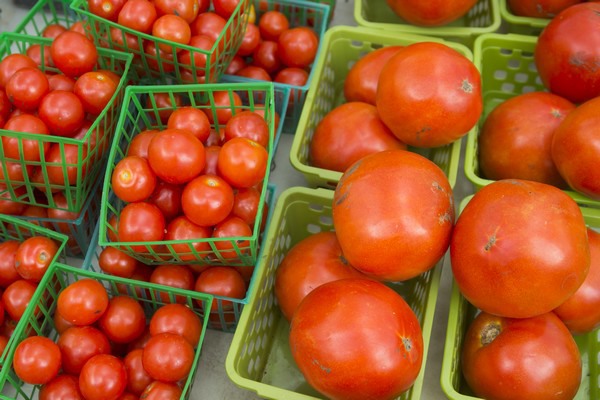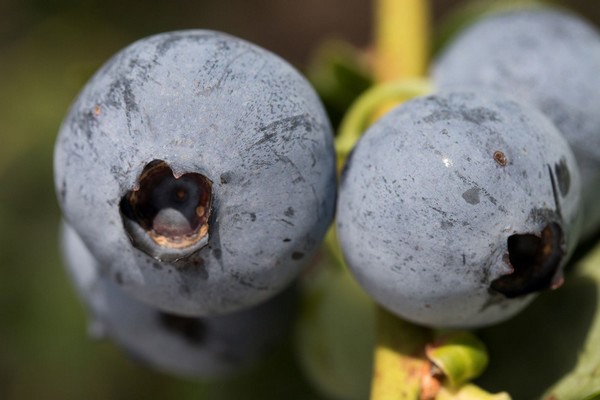Can a computer “taste” a tomato or a blueberry? Well, not exactly, but it can tell scientists which volatiles in these fruits make them taste good, say University of Florida researchers.
© University of FloridaUF/IFAS breeder and geneticist Marcio Resende
UF/IFAS breeder and geneticist Marcio Resende wants to create what he calls an “Artificial Intelligence Connoisseur,” a model that tells researchers which chemical compounds -- that is to say, volatiles, sugars, acids and other chemical compounds -- produce the best fruit flavors.
“Our study basically shows that these computer models can predict flavor with good accuracy, and in most of the sensory panel attributes,” Resende said.
To find out if a fruit or vegetable is worth breeding, scientists sample the crop for taste and smell themselves, going through fields and picking produce individually.
These processes can present logistical issues, said Harry Klee, a UF/IFAS horticultural sciences professor.

“Due to cost and logistical limitations, breeders do not typically employ consumer panels in their programs,” Klee said. “The ideal would be to use a large consumer panel that includes a diverse set of potential consumers. We use 100 people, spanning a range of age and ethnicity. This approach is much more representative of the population of shoppers.”
For years, plant breeders and geneticists helped farmers harvest higher yields because consumer-oriented traits such as flavor are harder to measure. However, high yields are not enough for producers to compete in nowadays demanding markets, said Patricio Muñoz, a UF/IFAS horticultural sciences associate professor in charge of the blueberry breeding program.
Producers know that if they do not include varieties that taste good, then their fruit might not sell for a good price or sell at all, said Muñoz.
To address this issue, UF/IFAS researchers screened a group of 70 chemical compounds, including sugars, acids and volatiles of diverse tomato and blueberry types and their corresponding panel ratings to create statistical and machine-learning models that can predict sensory perceptions of fruit flavor.
Resende led the new research that shows ways to get data from volatiles in blueberries and tomatoes into a statistical model. The research findings are now limited to those two fruits but will later be expanded to other crops UF/IFAS researchers develop.

UF/IFAS researchers tested the range of scores that tell them how much a consumer likes a flavor. As it turns out, volatiles explained up to 56% of the “like” scores, which reinforces evidence that volatiles are important in determining how much consumers like the fruit. Volatiles are also important in quantifying and estimating the importance of fruit flavor, Resende said.
“While breeders usually are intimately familiar with their crop, their flavor preferences may provide a limited snapshot of consumer responses,” Klee said.

 UF/IFAS
UF/IFAS